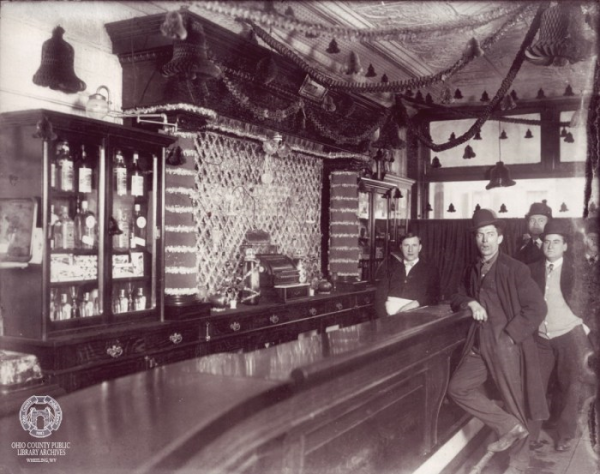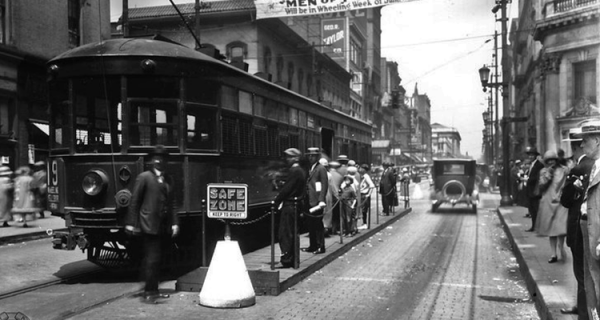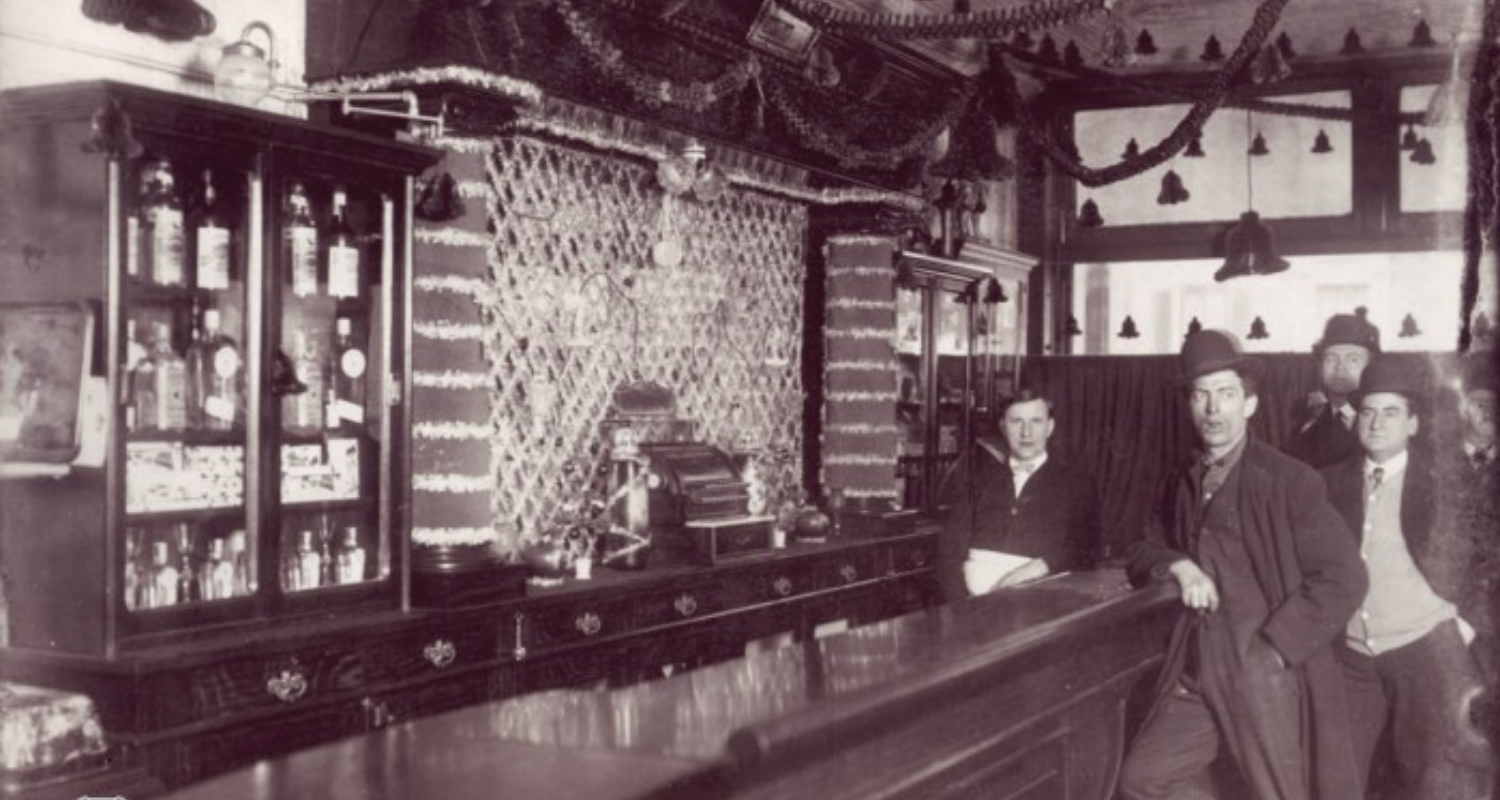Throughout the episodes of “Henry: The Life and Legacy of Wheeling’s Most Notorious Brewer,” we’ve learned about the history of Henry Schmulbach and in doing so, gained a sense of who he was. Like most people, Henry Schmulbach was a complex person, who was neither fully good nor bad. He was an innovative businessman and major employer who helped build industry in Wheeling, as well as being a noted philanthropist. But this episode delves into the seedier side of Schmulbach, even beyond his possible murder of Hamilton Forsythe that was covered in the episode three recap. Episode four of “Henry” discusses his corruption, which is encapsulated by the term Schmulbachism, and his involvement in the vice culture of Wheeling.
LISTEN NOW: Henry Episode 4, “Schmulbachism” and Politics
The first three episodes have already delved into the topic of saloons in Wheeling. But the vice and corruption that often accompanied saloons were discussed further in this episode. For example, did you know that, during this era, the polling places for elections in Wheeling were often saloons? Today, government buildings, schools and churches are where we all go to vote. But it would certainly be a different experience to cast your ballot in a saloon! Unfortunately, saloons were heavily influenced by the politics of the brewery associated with them, as Schmulbach was a Republican and his brewing rival Anton Reymann was a Democrat. Thus, it doesn’t seem to have been the best idea for free and fair elections.

The intricacies of Wheeling’s city government around the turn of the 20th century did not stop with saloons as voting booths. For instance, Wheeling City Council today has seven members. But during this era, it had two branches with a total of 44 council members, like a legislature! As complex as this political structure seems, it did not stop Schmulbach from asserting his political influence through serving on the Board of Public Works and the Board of Education. These positions were what led to allegations of corruption (or “Schmulbachism”) as Schmulbach came to serve as a kind of political boss in Wheeling. In that capacity, he, along with his typical political and business rival Anton Reymann, were united in stopping would-be reformers from any restrictions of alcohol consumption and industry in Wheeling.
Many aspects of Schmulbach’s life were publicly known and even discussed – such as his corruption. But one chapter in his history that was not discussed in the newspapers of the day was a case called State vs. Schmulbach Henry, where he was charged with having “unlawfully did live and board in a certain house of ill fame against the peace and dignity of the state” and “unlawfully loitering in a certain house of ill fame.” In other words, Schmulbach had been soliciting prostitution. But an unfair gender divide in these cases meant that Schmulbach’s charge would be settled quietly with a small fine so as not to impact his reputation. The so-called houses of ill fame were another part of the vice culture of the city that led to the term “wide open Wheeling.” However, this era saw the beginning of reforms that would ultimately change the city’s rowdy character.

The progressive era reforms of Wheeling were not only targeted at alcohol consumption and prostitution – there were also health and safety reforms from which the city still benefits today. For instance, the COVID-19 pandemic has highlighted the importance of preventing the spread of disease and epidemics. But before the modern sewage systems were implemented in Wheeling, outbreaks of diseases like typhoid fever were rampant. A 1913 report found that there were over 2,300 outdoor privies in Wheeling, and many of the city pumps were located near privies. Thus, our water systems were constantly contaminated. Garbage collection was another huge issue, as the two main ways to deal with garbage were dumping it in Wheeling Creek or burning it on hillsides above the city. I know that makes me very thankful for our garbage collectors today!
Ultimately, while Schmulbach’s status as a political boss would hold off alcohol regulations for a time, the tide of prohibition could not be stopped forever. In the recap for episode five, we’ll discuss the effect of prohibition on Wheeling and Schmulbach himself. Be sure to check back! For our bonus content, episode four contained parts of an interview with Mayor Glenn Elliott. The bonus video this week is the full interview with Hal Gorby and Mayor Elliott in the Professional Building – check it out!
[template_part type="video" title="Behind the Scenes – Full Interview with Wheeling Mayor, Glenn Elliott" description="" url="https://youtu.be/92dWcm2a8ZU"]• Katherine Leary is a summer intern at Wheeling Heritage. She is from Wheeling and is currently a senior at Wellesley College in Wellesley, Massachusetts studying History.



